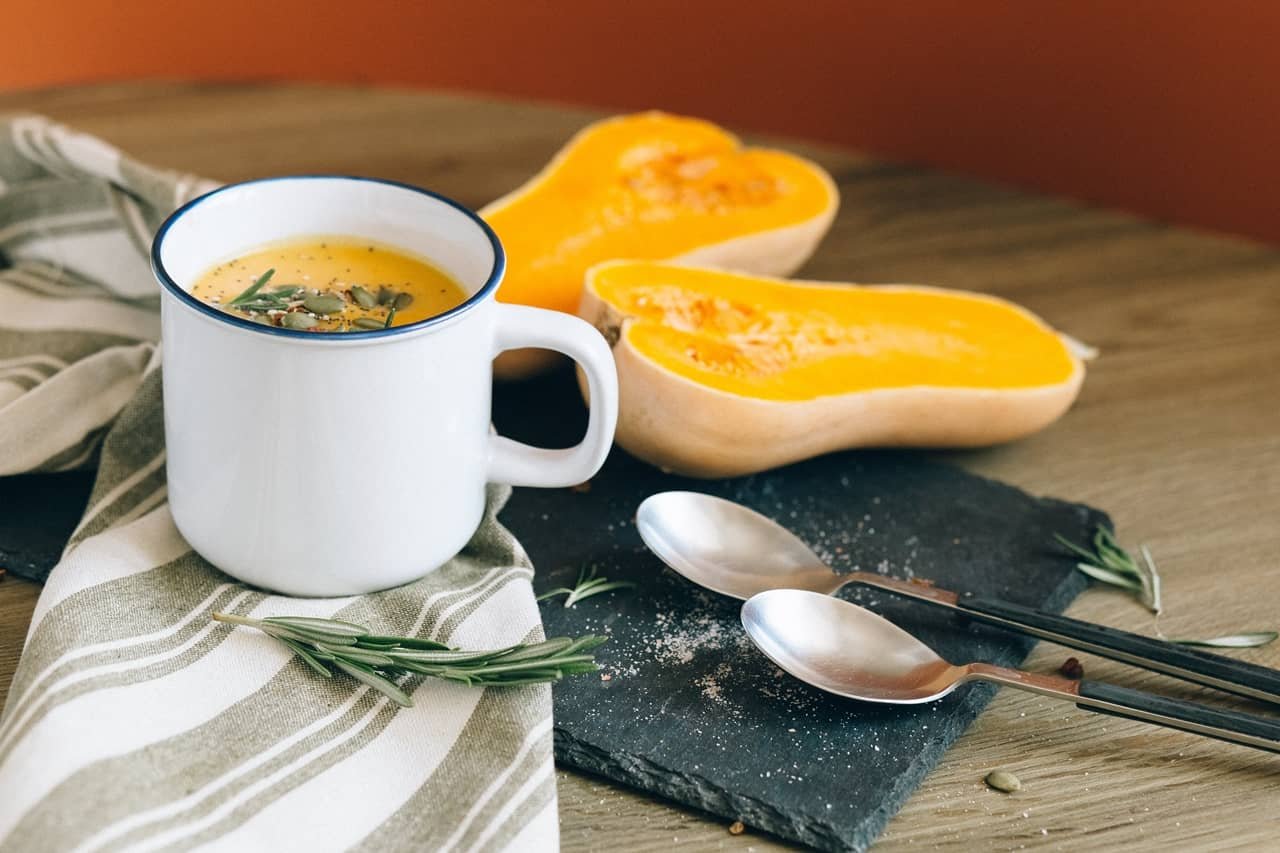Are you crazy to know pumpkin health benefits? Pumpkin seeds, also known as pepitas, are the edible seeds found in pumpkins. They have been eaten for centuries and are prized for their nutritional value and culinary versatility. Pumpkin seeds are usually small, flat and oval, with a greenish color and a white outer shell. They have a subtly sweet and nutty flavor, making them a popular ingredient in many dishes and snacks around the world.
Pumpkin seeds are a nutrient-dense food, packed with essential vitamins, minerals and antioxidants. They are particularly rich in protein, healthy fats, fiber, magnesium, zinc and antioxidants such as vitamin E and phenolic compounds. Due to their impressive nutritional profile, pumpkin seeds offer a variety of health benefits, including improved heart health, better sleep, support for prostate health, and enhanced immunity. Including pumpkin seeds in your diet can contribute to overall health and wellness.
Nutritional composition Of Pumpkin Seed
Macronutrient Content:
Pumpkin seeds are rich in macronutrients, providing a balance of protein, fat and carbohydrates. Although they are high in fat, the fats found in pumpkin seeds are primarily healthy unsaturated fats, including monounsaturated and polyunsaturated fats. Additionally, pumpkin seeds contain moderate amounts of protein and carbohydrates, making them a well-rounded source of energy and nutrients.

Micronutrient Content:
Pumpkin seeds are rich in essential vitamins and minerals, which contribute to overall health and well-being. They are especially high in micronutrients such as magnesium, zinc, iron, phosphorus, manganese and copper. Additionally, pumpkin seeds contain significant amounts of vitamins E and K, as well as small amounts of vitamins B1 (thiamine), B2 (riboflavin), B3 (niacin), B6 (pyridoxine), and folate.
Fiber Content:
Fiber is another important component of pumpkin seeds, which contributes to digestive health and increases satiety. Pumpkin seeds contain both soluble and insoluble fiber, insoluble fiber provides bulk to the stool and helps regular bowel movements, while soluble fiber helps control blood sugar levels and cholesterol levels. Including pumpkin seeds in the diet can thus help maintain a healthy digestive system and support overall well-being.
Nutritional profile of pumpkin seeds per 1 ounce (28 grams) serving:
| Nutrient | Amount Per Serving |
|---|---|
| Calories | 151 |
| Total Fat | 13 grams |
| – Saturated Fat | 2.5 grams |
| – Monounsaturated Fat | 4 grams |
| – Polyunsaturated Fat | 6.5 grams |
| Cholesterol | 0 mg |
| Sodium | 5 mg |
| Potassium | 223 mg |
| Total Carbohydrates | 5 grams |
| – Dietary Fiber | 1.7 grams |
| – Sugars | 0.4 grams |
| Protein | 7 grams |
| Vitamin E | 1.4 mg (9% DV) |
| Thiamin (Vitamin B1) | 0.1 mg (9% DV) |
| Riboflavin (Vitamin B2) | 0.1 mg (9% DV) |
| Niacin (Vitamin B3) | 0.4 mg (3% DV) |
| Vitamin B6 | 0.1 mg (6% DV) |
| Folate (Vitamin B9) | 19.4 mcg (5% DV) |
| Iron | 4.2 mg (23% DV) |
| Magnesium | 150 mg (36% DV) |
| Phosphorus | 262 mg (21% DV) |
| Zinc | 2.2 mg (20% DV) |
| Copper | 0.2 mg (22% DV) |
| Manganese | 0.3 mg (12% DV) |
Note: Percent Daily Values (%DV) are based on a 2,000 calorie diet. Actual values may vary depending on factors such as growing conditions and preparation methods.
Health Benefits Of Pumpkin
Improves Heart health
Omega-3 Fatty Acids: Pumpkin seeds are a good source of omega-3 fatty acids, which are known to improve heart health by reducing inflammation, improving cholesterol levels, and supporting overall cardiovascular function.
Magnesium content: Pumpkin seeds are rich in magnesium, a mineral that plays an important role in maintaining a healthy heart rhythm, regulating blood pressure, and supporting muscle and nerve function.
Improves Sleep Disturbance
Tryptophan content: Pumpkin seeds contain tryptophan, an amino acid that acts as a precursor to serotonin and melatonin, neurotransmitters involved in regulating the sleep-wake cycle. Eating tryptophan-rich foods like pumpkin seeds can help improve sleep quality.
Melatonin regulation: In addition to tryptophan, pumpkin seeds also contain compounds that support the regulation of melatonin, a hormone that regulates the sleep-wake cycle. This can contribute to better sleep patterns and overall sleep quality.
Helps To Maintain Prostate health
Zinc Content: Pumpkin seeds are an excellent source of zinc, a mineral that plays an important role in supporting prostate health. Adequate zinc intake is associated with a reduced risk of prostate enlargement and may help relieve symptoms of benign prostatic hyperplasia (BPH).
Phytosterols: Pumpkin seeds contain phytosterols, plant compounds that have been studied for their potential benefits in supporting prostate health and reducing the risk of prostate cancer.
Antioxidant Properties
Vitamin E: Pumpkin seeds are rich in vitamin E, a powerful antioxidant that helps protect cells from free radicals. Vitamin E may contribute to reducing the risk of chronic diseases such as heart disease and cancer.
Phenolic compounds: Pumpkin seeds also contain phenolic compounds, including flavonoids and lignans, which possess antioxidant properties and may help the body fight oxidative stress and inflammation.
Improves Immune Support
Zinc and Selenium Content: Pumpkin seeds are a good source of zinc and selenium, two minerals essential for maintaining a healthy immune system. These minerals play a key role in immune function, including supporting the production and activity of immune cells.
Antimicrobial Properties: Pumpkin seeds contain compounds such as cucurbitacin, lignans, and peptides, which have demonstrated antimicrobial properties against a variety of pathogens, including bacteria, viruses, and fungi. These properties can help strengthen the body’s defenses against infections and support overall immunity.
Including pumpkin seeds in a balanced diet can provide these health benefits, contributing to overall wellness and vitality. Whether enjoyed as a snack, sprinkled over salads and yogurt, or incorporated into recipes, pumpkin seeds offer a delicious and nutritious addition to any diet.
Pumpkin Seeds Helps In Weight Management
High Protein and Fiber Content:
Pumpkin seeds are an excellent addition to a weight management plan due to their high protein and fiber content. Protein is known to increase satiety and reduce hunger, preventing overeating and helping with weight loss or maintenance. Additionally, fiber adds bulk to meals, promotes feelings of fullness and reduces the likelihood of snacking between meals. By including pumpkin seeds in your diet, you can increase your intake of both protein and fiber, which can aid in weight management efforts.
Appetite Control:
Pumpkin seeds contribute to appetite control through several mechanisms. The combination of protein and fiber in pumpkin seeds helps slow down digestion, making you feel fuller for longer after eating. Additionally, certain compounds found in pumpkin seeds, such as tryptophan and fatty acids, have been linked to improved mood and reduced appetite, which may further support appetite control. By including pumpkin seeds in your meals or snacks, you can help control your appetite and potentially reduce overall calorie intake, aiding in weight management goals.
In addition, pumpkin seeds contain healthy fats, including monounsaturated and polyunsaturated fats, which play a role in appetite control. These fats contribute to feelings of fullness and can help stabilize blood sugar levels, preventing rapid spikes and crashes that can lead to hunger and cravings. By including pumpkin seeds in your diet, you can enjoy their satisfying texture and flavor while supporting a balanced appetite, ultimately contributing to effective weight management strategies.
Including pumpkin seeds as a topping for meals, snacks or salads and yogurt can be a convenient and enjoyable way to reap their benefits for weight management.
How to Include Pumpkin Seeds In Diet?
Snacking:
Pumpkin seeds make a nutritious and satisfying meal option on their own. Simply fry them with a sprinkle of salt or your favorite spices for a crunchy and flavorful meal. You can also mix pumpkin seeds with other nuts and dried fruits to create a custom trail mix for on-the-go snacking.

Adding to Salads and Soups:
Improve the nutritional value and texture of salads and soups by adding pumpkin seeds as a topping. Sprinkle roasted pumpkin seeds over fresh greens or hearty soups for an extra crunch. You can also throw pumpkin seeds into grain-based salads or vegetable stir-fries for added protein and flavor.
Baked goods include:
Pumpkin seeds add nutrients to the batter or dough of baked goods like bread, muffins, and granola bars. Mix pumpkin seeds into homemade bread or muffin batter before baking for added texture and nutrition. You can sprinkle pumpkin seeds over oatmeal cookies or energy bars before baking to create a pumpkin crust.
Check out the different ways to add pumpkin seeds to your favorite foods and recipes to enjoy their health benefits and delicious flavor in different forms throughout the day.
Cautions and Considerations
Allergies:
Although pumpkin seeds are generally well tolerated by most people, some individuals may be allergic to seeds or nuts, including pumpkin seeds. Symptoms of an allergic reaction can range from mild itching or swelling to severe wheezing. If you have a known allergy to seeds or nuts, it is important to avoid eating pumpkin seeds and products containing them. Additionally, people with pollen allergies may experience cross-reactivity with pumpkin seeds, resulting in allergy symptoms. If you suspect you have a pumpkin seed allergy or experience an allergic reaction after eating it, consult a healthcare professional.
Oxalate Content:
Pumpkin seeds contain oxalates, which are naturally occurring compounds found in many plant foods. In people prone to kidney stones or kidney-related conditions, high oxalate intake may increase the risk of kidney stone formation. Although pumpkin seeds are not exceptionally high in oxalate compared to some other foods, moderate consumption of pumpkin seeds and other high-oxalate foods is recommended for people with kidney problems. Additionally, pairing pumpkin seeds with calcium-rich foods can help reduce oxalate absorption in the body.
Portion Control:
Despite their numerous health benefits, pumpkin seeds are calorie-dense due to their fat content. Eating large amounts of pumpkin seeds regularly can contribute to excess calorie intake, potentially leading to weight gain or other health problems. Practice portion control when enjoying pumpkin seeds as an ingredient in meals or recipes. A serving size of pumpkin seeds is usually about 1 ounce (28 grams), which equals about 2 tablespoons. Enjoy pumpkin seeds as part of a balanced diet and be aware of your overall calorie intake to maintain a healthy weight and lifestyle.
By being aware of these precautions and considerations, you can safely include pumpkin seeds in your diet and enjoy their nutritional benefits while minimizing potential risks.
Conclusion
Pumpkin seeds offer countless health benefits, including:
- Supports heart health due to their omega-3 fatty acid and magnesium content.
- Improved sleep quality by regulating tryptophan and melatonin.
- Prostate health maintenance with zinc and phytosterols.
- Antioxidant properties from vitamin E and phenolic compounds.
- Immune support with zinc, selenium and antimicrobial properties.
Including pumpkin seeds in your diet can be an easy and delicious way to improve your overall health and well-being. Whether enjoyed as a snack, added to salads and soups, or incorporated into baked goods, pumpkin seeds provide essential nutrients, increase satiety, and support a variety of bodily functions. By regularly including pumpkin seeds in your diet, you can reap the numerous health benefits they offer and contribute to a balanced and nutritious eating pattern. So, why not add pumpkin seeds to your grocery list today and start enjoying their health-promoting properties?
















